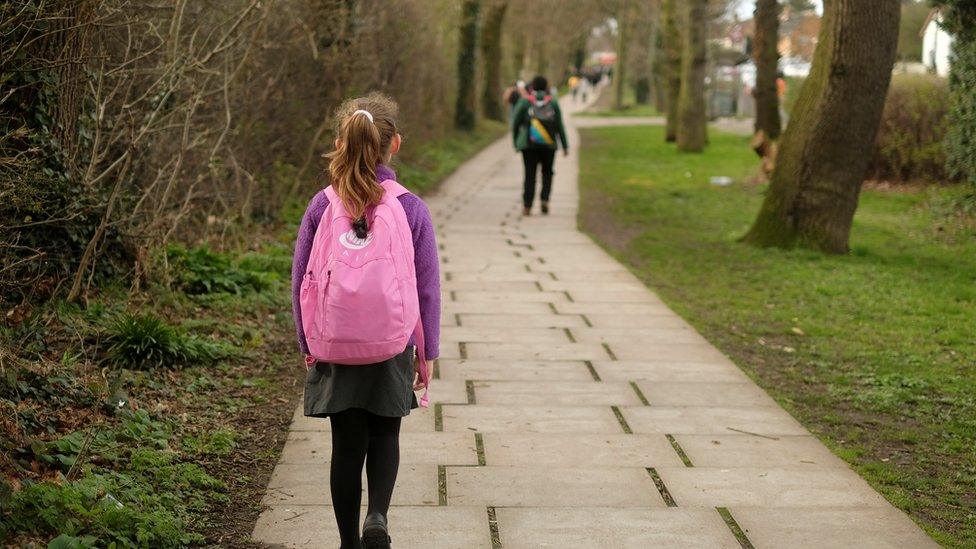Coronavirus: Tough school decisions for families on the border
- Published
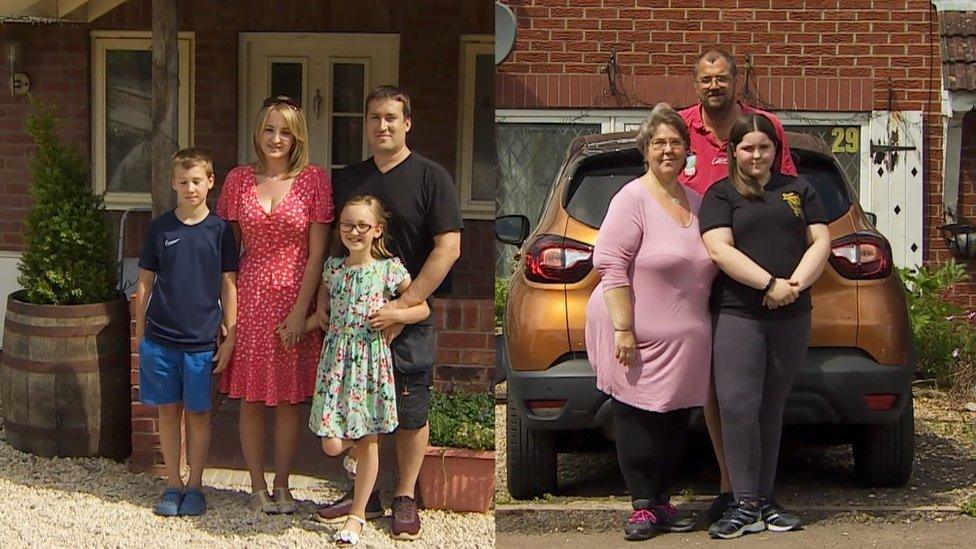
The Morgans and Lyalls are two families divided by an invisible line
Almost every school night, Hope Lyall would usually be at dance practice.
She does ballroom, Latin, tap and ballet.
But like every other school-age child that has a hobby, sport or passion, she's been practising, and also learning, at home since lockdown restrictions were put in place on 23 March.
Hope is in Year 6, the last year of primary school. She lives in England, but goes to school in Wales.
It's the year for prom, exams, and the last time seeing many friends - September means high school when she won't see some ever again, as some of her fellow classmates will continue their education in Chepstow, in Wales, and others move to Wyedean, in England.
Coronavirus cross border school decisions 'difficult'
And for those reasons, her mother, Virginia, would prefer that Hope could return to school, if possible.
"It's the transition, they're going into a big school, and it's going to be a major change, but I think they just need the baby steps that Year 6 gives them getting ready, and they haven't had that because we're all home-schooling," she said.
And, it's clear what Hope would rather be doing: "I'd would really like want to say a proper goodbye to all of my friends."
Knighton is in Powys, mid Wales. But Offa's Dyke, the national path that roughly runs along the Welsh/English border, runs straight through the town.
The majority of residents in Knighton live in Wales, with the rest in England.
Both countries are now following different lockdown rules to deal with the coronavirus pandemic, with England starting to ease the regulations before its neighbour.
As a result, England is aiming to get Reception, Year 1 and Year 6 children back in school from the start of June.
But Wales hasn't yet made a decision when classes will resume.
The reality of living on the border is that life takes place in both countries - which has made for some tough decisions for families.
"We've been doing scrabble instead of spelling as I decided I couldn't do another spelling test," said Rebecca Morgan.
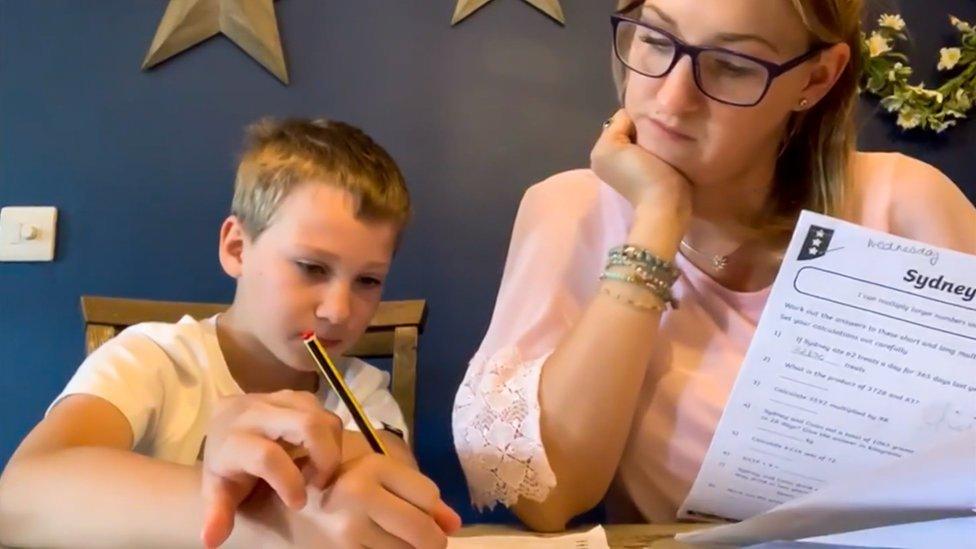
Rebecca Morgan has been home schooling Mason, 11, and Summer, eight
She has been home schooling eight-year-old Summer and 11-year-old Mason, as she works from home while her husband works as an emergency engineer.
Even though they live in Wales, they spend their lives in both countries, which she says has been made more tricky with governments in Westminster and Cardiff Bay issuing different advice.
Rebecca said: "It's confusing and it's difficult, I think you just take the bits of advice that suit you to be honest."
Like Hope, Mason is also in Year 6.
His school in England has said his year group is starting back up on 1 June, but his parents have decided not to send him back, safety being the primary concern.
Can children catch and spread coronavirus?
"They haven't said every year group can go back, which they're not going to because it's a phased return," Rebecca added.
"But you do just get that feeling that certain teachers and certain pupils are being put in that more dangerous situation - they're just being used as the 'test samples'.
"I almost feel that me having him at home is one less child for them to worry about."
Will families face fines?
The Welsh Government says journeys across the border for education would be classed as essential, so the Morgan family would not face penalties if they were to change their minds and take Mason to school.
Although the UK government encourages families in England to send their children to school if they reopen, given the circumstances, those families that choose not to send will not be penalised.
The Morgans and the Lyalls are two families divided by an invisible line, living their lives in two countries, whose children have to follow different sets of rules.

A SIMPLE GUIDE: How do I protect myself?
IMPACT: What the virus does to the body
RECOVERY: How long does it take?
LOCKDOWN: How can we lift restrictions?
ENDGAME: How do we get out of this mess?

- Published7 May 2020
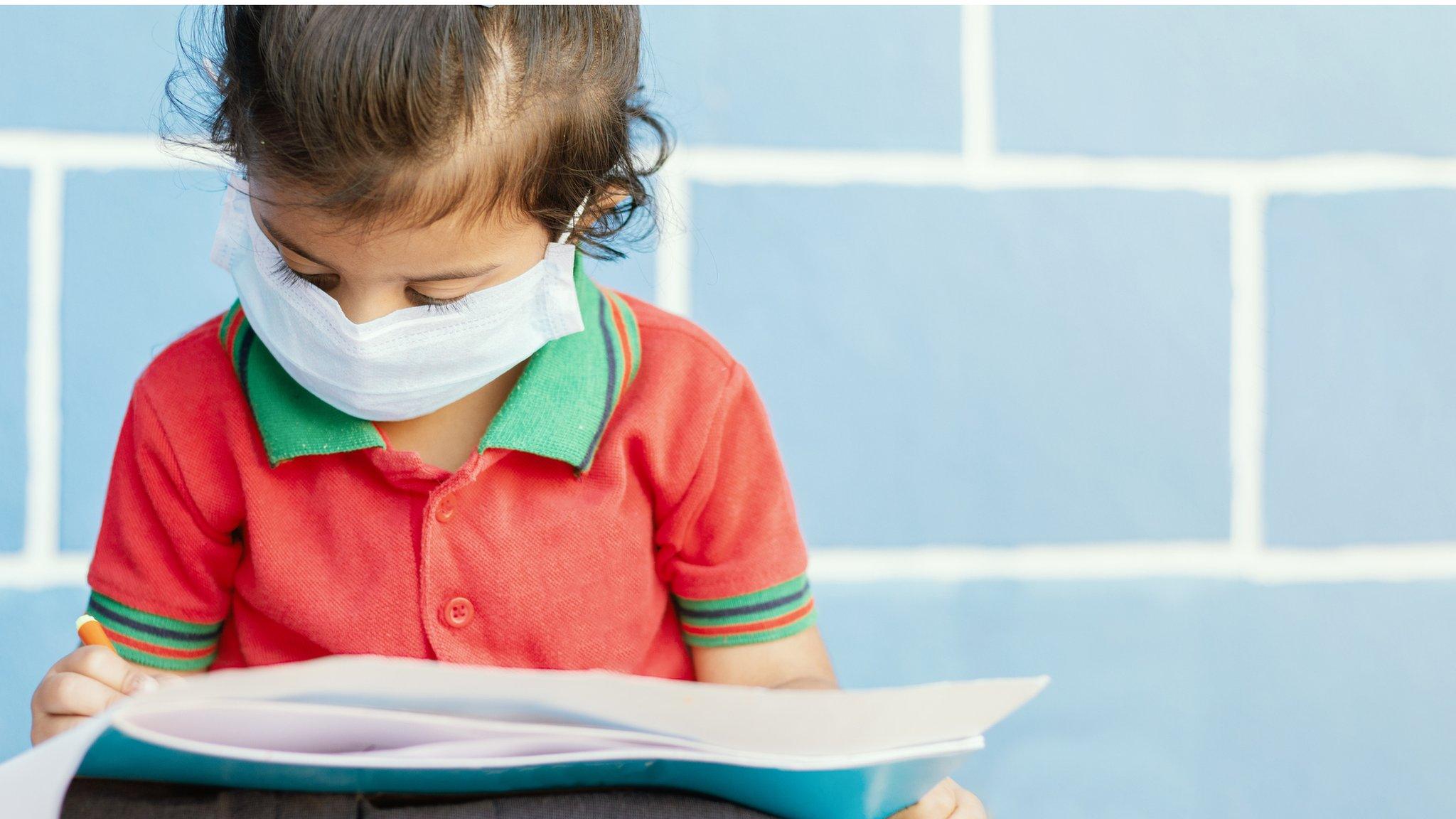
- Published22 May 2020
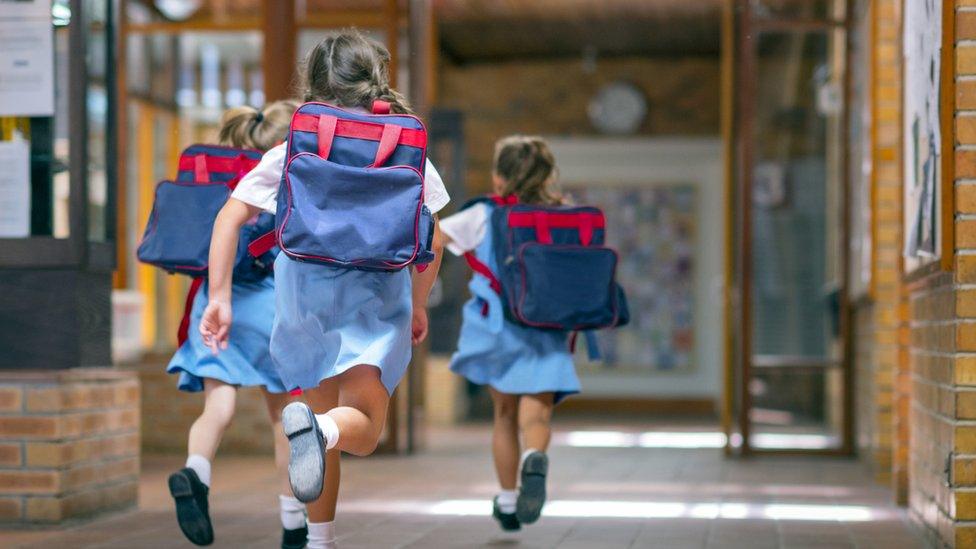
- Published23 February 2022
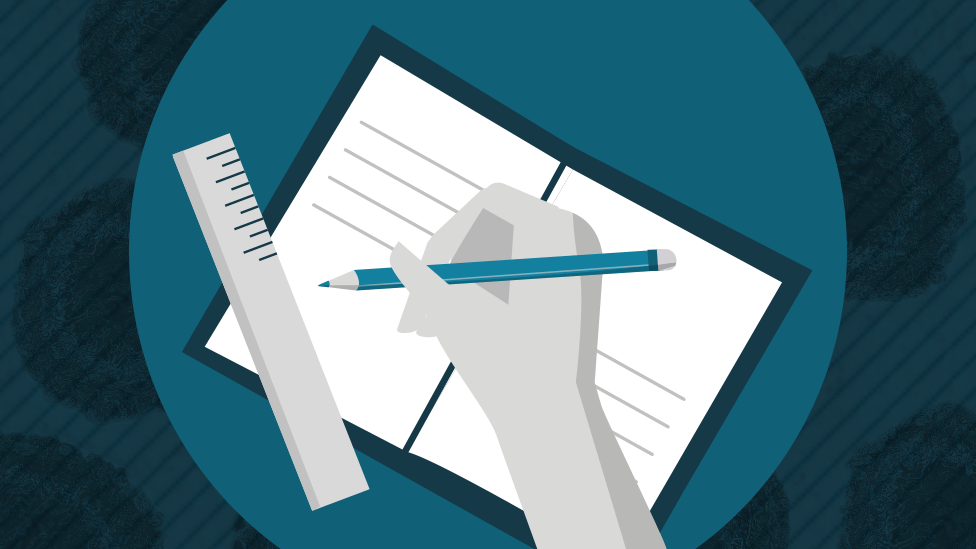
- Published28 April 2020
